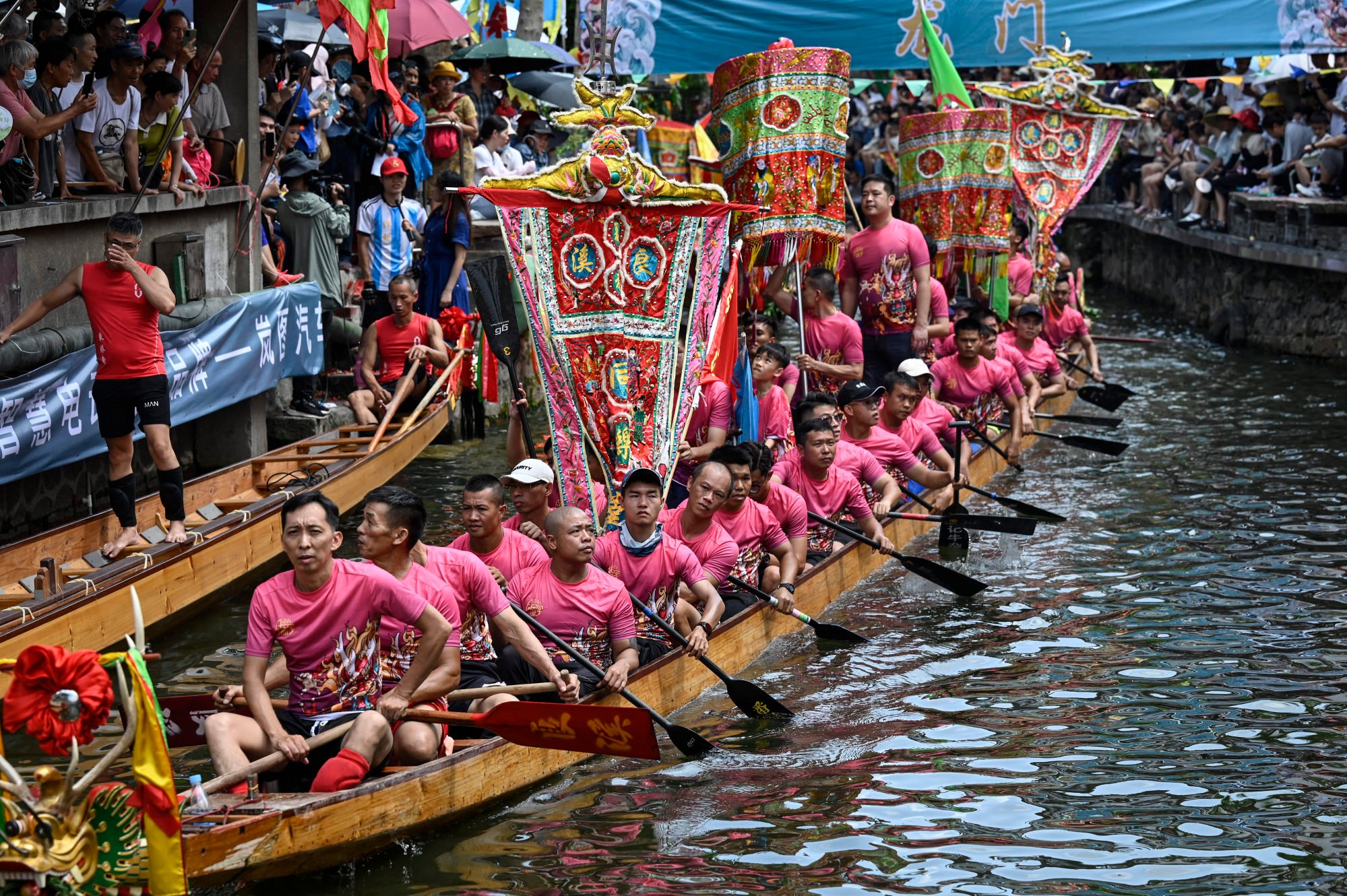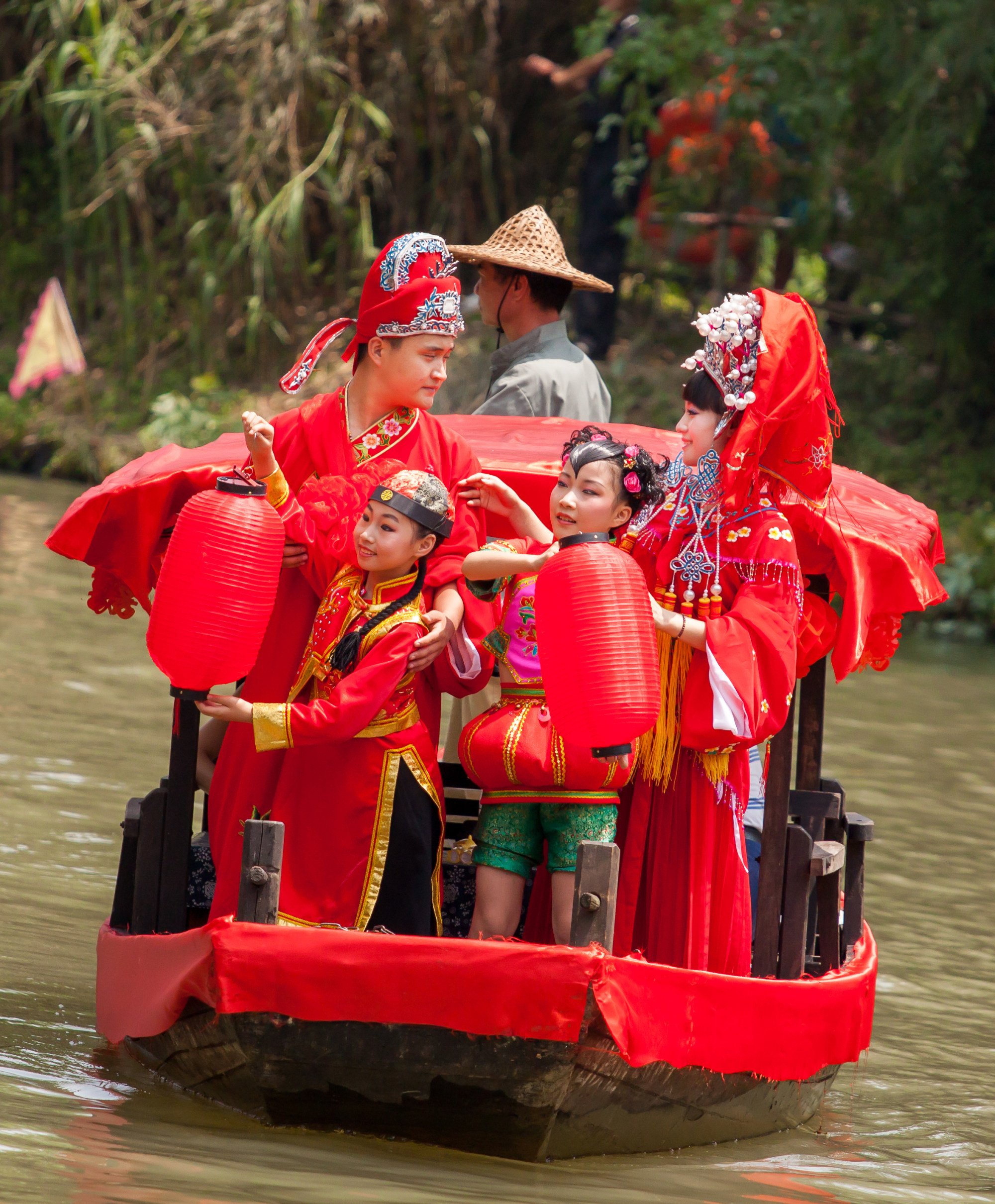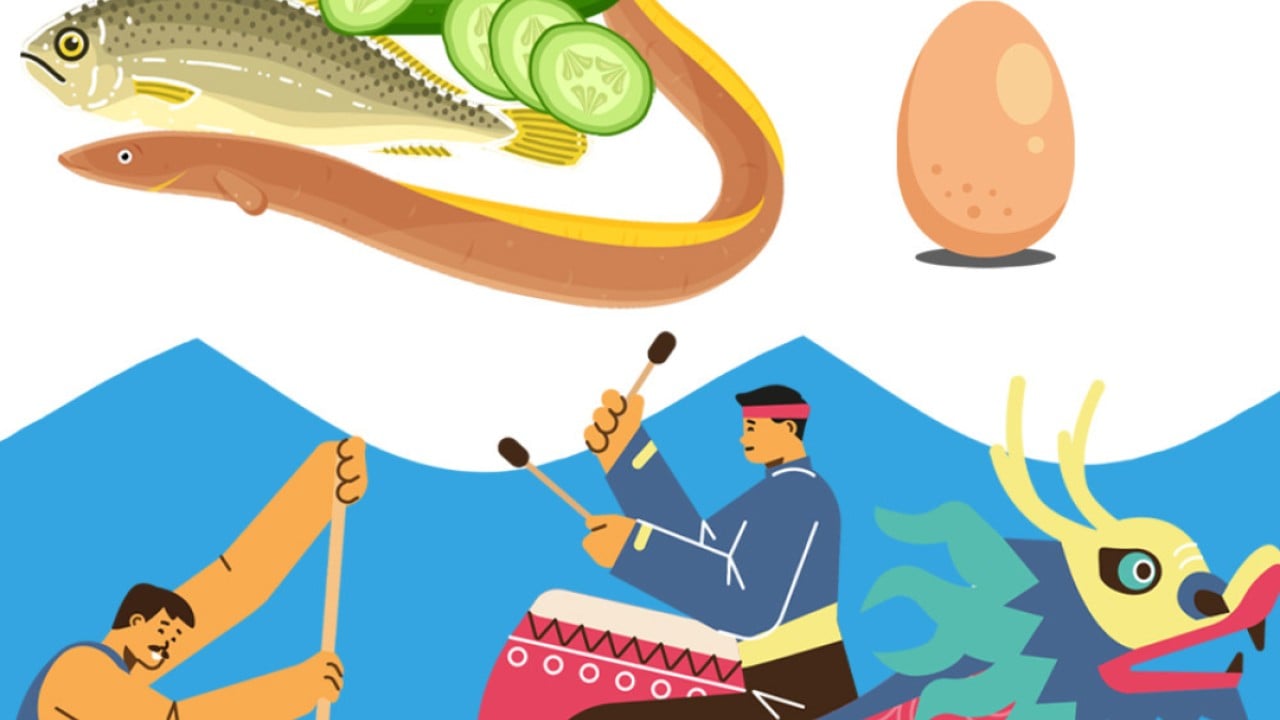Explainer | Quirky secrets of China’s Dragon Boat Festival revealed, why standing eggs upright matters
China’s Dragon Boat Festival, celebrated on the fifth day of the fifth lunar month, boasts a rich history spanning over 2,000 years.
Originally it was intended to commemorate Qu Yuan, a famous poet from the ancient Chu state during the Warring States period (475-221 BC), who drowned himself in a river.
But the festival is also known for its broader customs, such as dragon boat races and the preparation of zong zi, a traditional rice dish wrapped in bamboo leaves.
However, there are a variety of lesser-known, but equally intriguing customs.
In Zigui county in Yichang in Hubei province, central China, the hometown of Qu Yuan, the festival is uniquely celebrated three times a year.
The first is on the fifth day and focuses on honouring Qu Yuan, the next, and deemed the major event, is on the 15th and features grand dragon boat races, and the last comes on the 25th and marks the summer harvest.
The Post takes a closer look at more obscure traditions connected to the festival.

Eating ‘five yellows’
The Jiangnan region, which spans cities like Shanghai and provinces such as Jiangsu and Zhejiang, sees the popularity of eating “five yellows” during the festival.
These are eel, yellow croaker, cucumber, salted egg yolk, and realgar wine – each name contains the Chinese character huang, which means “yellow”.
Inspired by Chinese mythology “The Legend of the White Snake,” where Bai Suzhen revealed her true nature of being a snake after consuming realgar wine, locals believe that drinking it can ward off evil.
Realgar, or xiong huang wine is an alcoholic drink that consists of huang jiu dosed with powdered realgar, a yellow-orange arsenic sulphide mineral.
However, caution is advised because this wine contains toxic compounds that form when it is heated, making it unsafe for consumption.
Five poison plasters
In ancient times, hot weather during the festival led to an increase in the number of poisonous insects around, thus raising the risk of epidemics. This gave rise to the custom of applying “five poison” plasters.
The five typically refer to scorpions, snakes, geckos, centipedes, and toads, though the list can vary according to local conditions.
The custom sees people drawing pictures of these insects on yellow paper, placing them on walls and pricking the images with needles, symbolising driving away the poisons.
Poison-eating cloth tigers also became popular gifts.
Upright eggs
A fun belief holds that at noon on festival day, when yang energy peaks, it is possible to stand an egg upright, a feat that can bring good luck for the year ahead.
This activity has become a popular children’s game, with various techniques for successfully standing an egg upright discussed online.
These include sprinkling salt on the table or holding the egg for one minute to allow the egg yolk to settle down before trying to stand it.
Multi-coloured strings
These are worn to ward off disasters and often come in five colours – blue, white, red, black and yellow which correspond with the five elements – wood, metal, fire, water and earth.
They are traditionally tied on the wrists of children and the ankles of adult men.

They should not be discarded casually after the festival, but be thrown into rainwater during a downpour to symbolise the washing away of troubles.
Over time, the practice has evolved into wearing scented sachets containing herbs, symbolising love .
Forehead kings
Another fun and protective custom involves writing the Chinese character wang, which means “king” on children’s foreheads using realgar wine.
It is seen as a talisman to protect them against evil.
Modern times have added new customs to the Dragon Boat Festival, particularly in how people express their wishes.
Instead of saying “happy festival”, today people are advised to wish “well-being” for families and friends because the festival emphasises health and safety over festive atmospheres, particularly given the tragic death of Qu Yuan.
Also, zong zi spark an annual debate about flavour preferences across China.
While northern regions typically favour sweet fillings like dates and red bean paste, southern regions prefer savoury fillings.
“Both sweet and savoury have their merits. As long as everyone enjoys their food, that’s what matters,” said one online observer.


